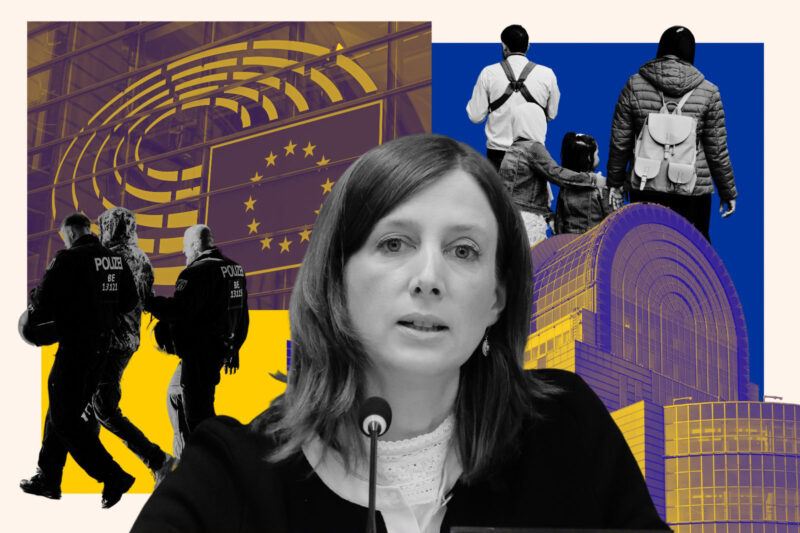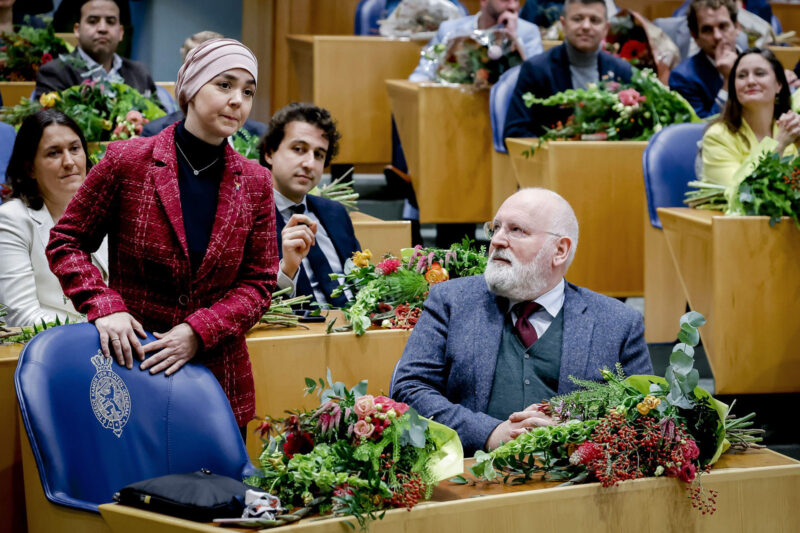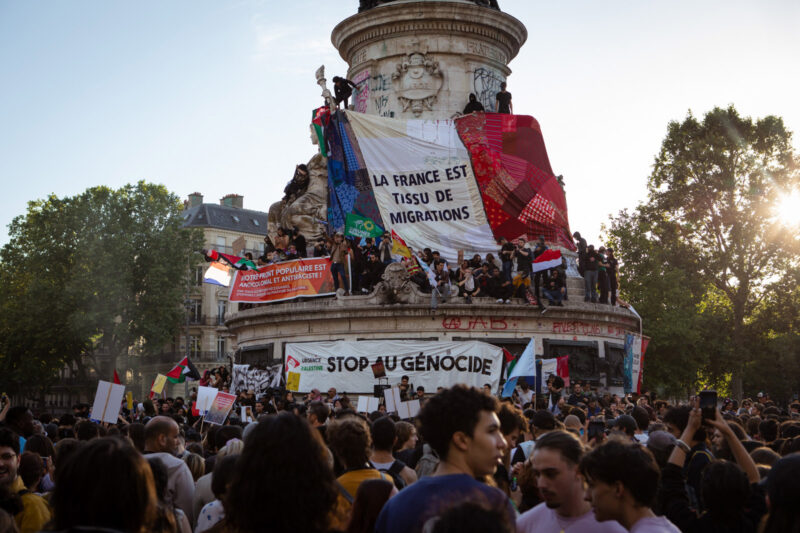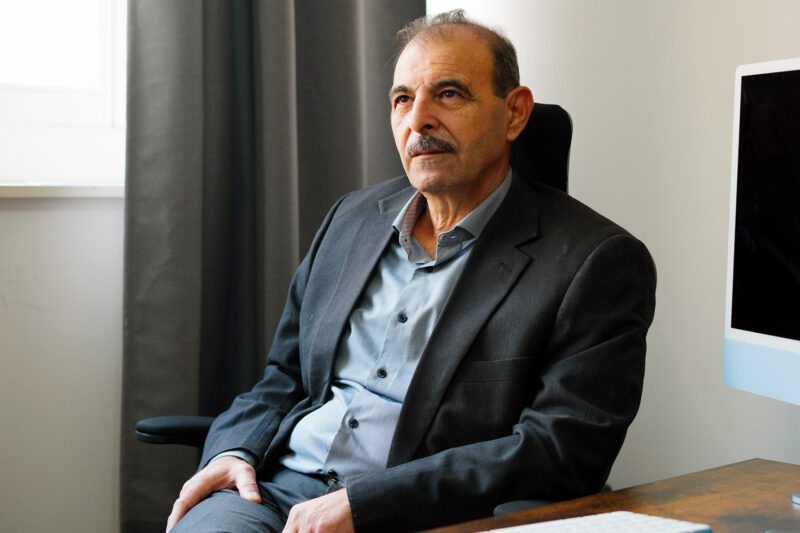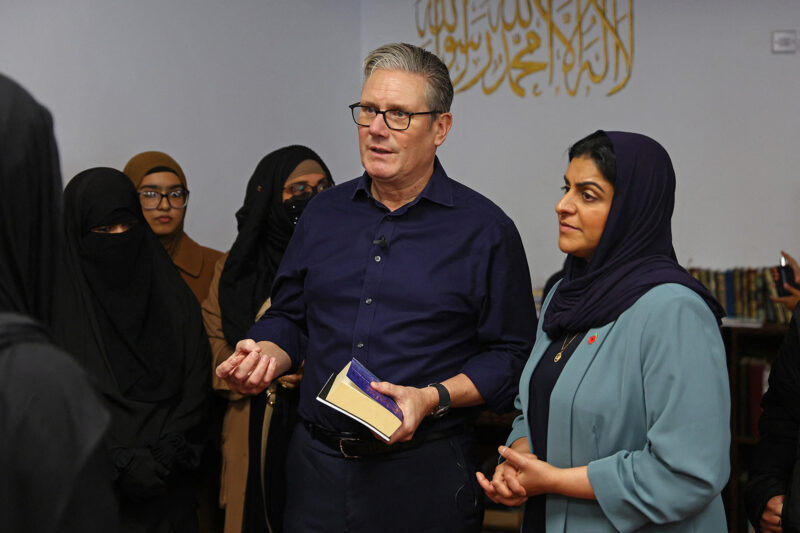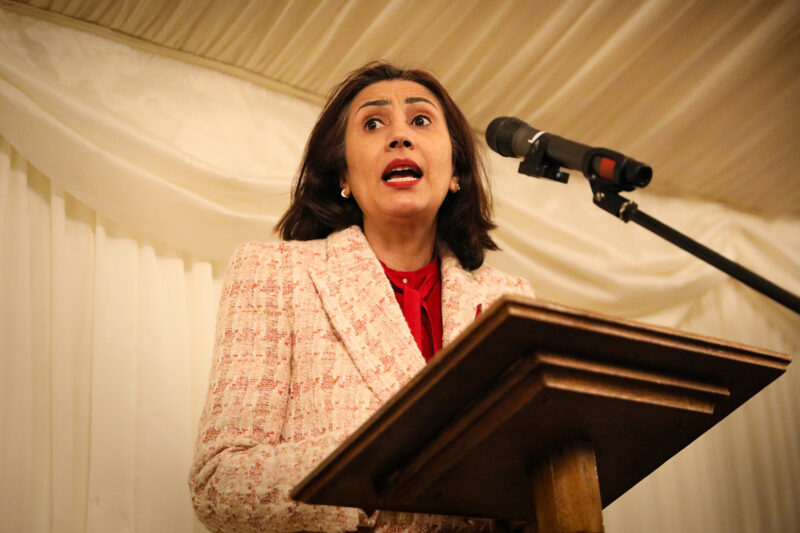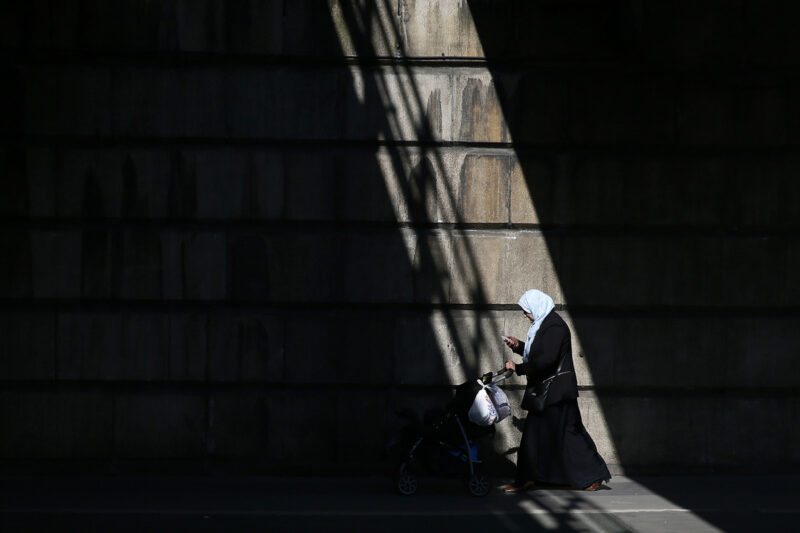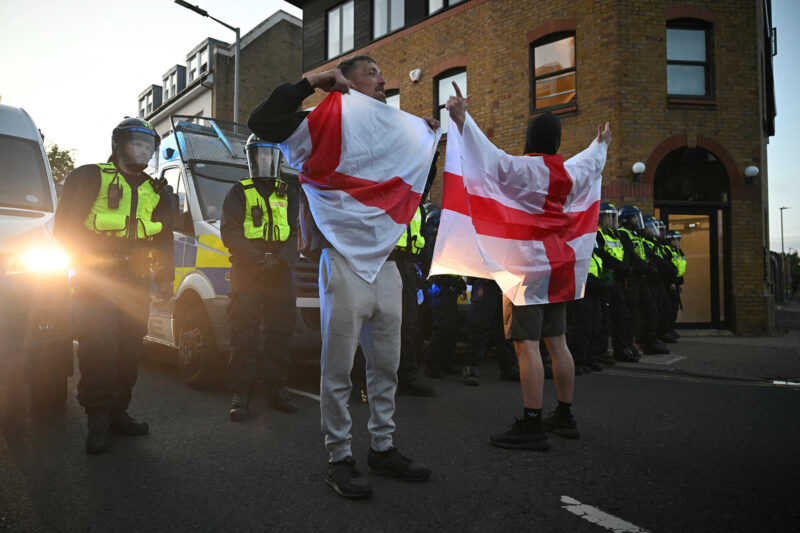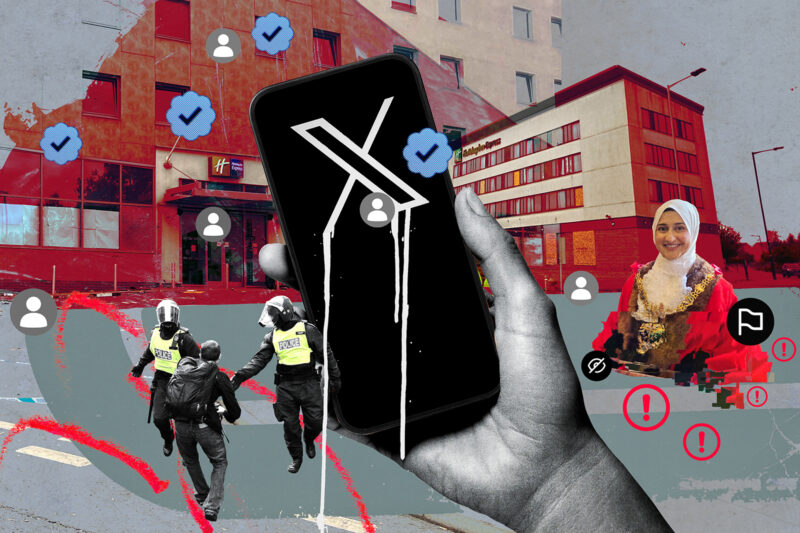Why is the far right thriving in Thuringia?
In September, the east German state became the first to vote for anti-immigrant party the AfD. For the thousands of Muslim asylum seekers living there, safety is an ever-growing concern
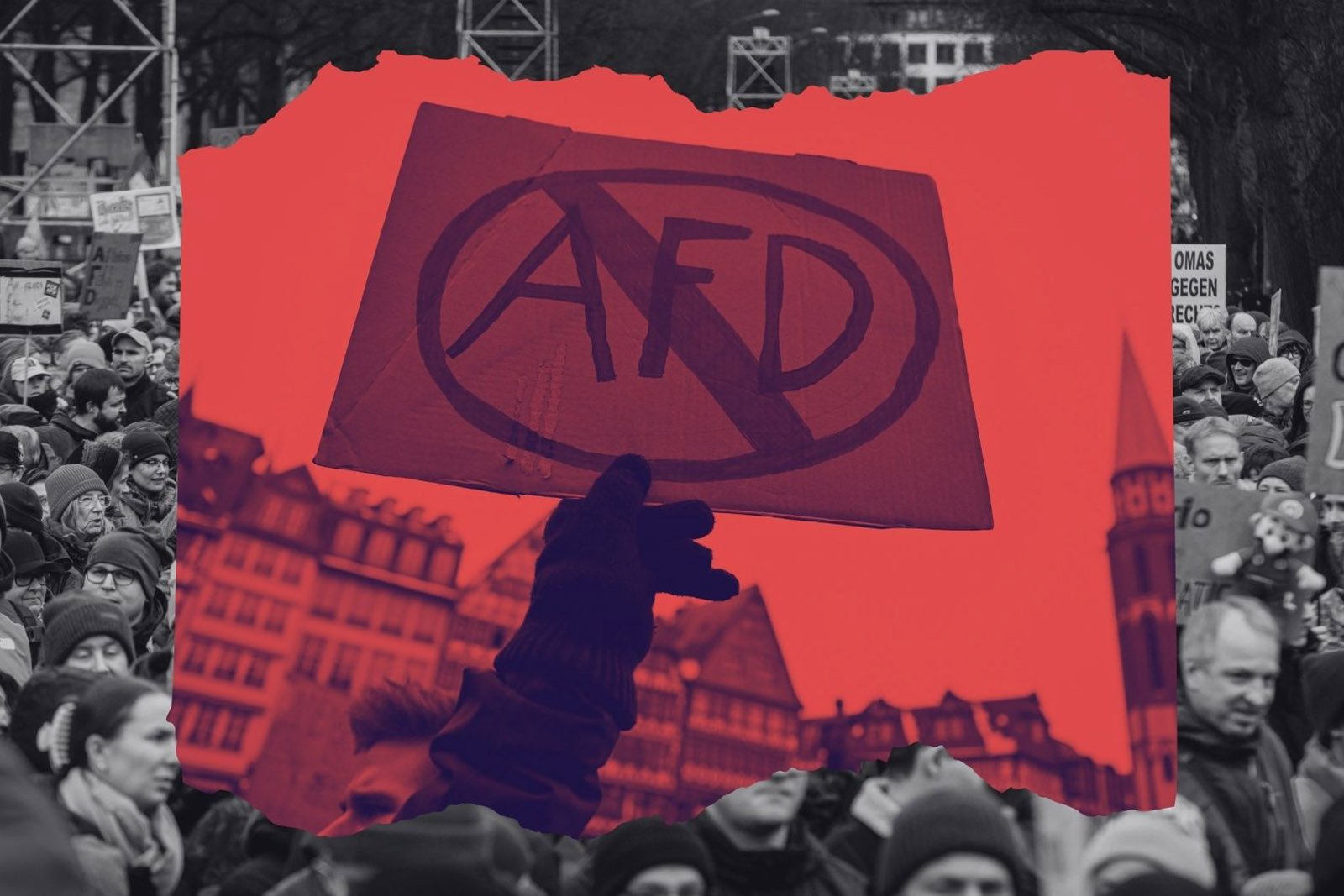
Early one morning in February, Mohammed was woken by a neighbour banging loudly on his door. A bin outside the old farm building where he and two other refugee families live in small apartments had been set on fire. The flames had already spread to a nearby tree and were encroaching on his building’s timber roof.
As he stood in the cold, dark country lane in Thuringia, eastern Germany, with his three children waiting for the emergency services to arrive, the 43-year-old single father watched the flames threatening his home in disbelief, wondering if they had been started by the same group of young men he’d seen throwing rocks and bottles at his home a few weeks earlier. “I couldn’t accept that people could do this to us,” he said. “We always kept our heads down, we never started trouble with anyone.”
Mohammed — whose surname and exact location we’ve withheld for his security — arrived in Germany from Syria three years ago, fleeing the war there. Germany’s central asylum system distributes new arrivals equally across the country. Mohammed’s family were sent to dormitory accommodation in Thuringia and told they would be housed in the state until the courts had processed their asylum claim. They had been excited to move to their own apartment after two years sharing accommodation with hundreds of others, until the attacks began six months later.
It started with the stones and bottles, then their bikes and mail were stolen and a firework was put through the letterbox. Mohammed’s teenage children were anxious and sleeping badly. “They were begging me to move somewhere else, but I couldn’t do anything,” he said. “All we could do was wait.” Nine months later, the family is still waiting — along with 67,820 other registered asylum seekers in Thuringia — in an increasingly hostile limbo.
Thuringia has provided the far right with its biggest election success anywhere in Germany since the second world war. On 1 September, the anti-immigration party Alternative für Deutschland (AfD) came top in state elections with 32% of the vote — its biggest ever vote share. Under Germany’s federal system, state governments have significant lawmaking powers in education, culture and social welfare. The Thuringian branch of the AfD is considered one of the most extreme in Germany. Its spokesperson Björn Höcke has been fined twice for using Nazi slogans in speeches.
In 2023, 8,821 asylum claims were lodged in Thuringia — an increase of 5,837 from 2022 but still well below the peak of 16,044 in 2016. Most asylum seekers there live in secluded camps or shared accommodation in small villages and towns. Mohammed has been housed on a leafy road that until recently had no streetlights, on the outskirts of a small town. These remote spots can feel vulnerable, and often are. Ezra, an organisation that offers counselling for victims of far-right violence, documented violent racism in Thuringia. A spike in attacks began in 2015 with the arrival of the first refugees, reaching 186 in 2023. Last year, the number of recorded incidents dropped to 147, still higher than the annual average of 117, but with a particular increase in attacks on shared refugee accommodation.
Adam Alazawe, who arrived in Germany from Syria in 2016 and now works with asylum organisations including the Thuringia Refugee Council, believes the state has particular challenges when it comes to safeguarding asylum seekers. A rural region of forests and remote villages, Thuringia is one of the poorest areas of Germany. Its population has plummeted in recent decades as people left to find work.
“Refugees are isolated, they don’t know where to get support and they often don’t trust police due to racism they have previously experienced,” said Alawaze, describing his own bad experiences with law enforcement. “I once had a group of five neo-Nazis outside my apartment, looking at my name on my doorbell. When I called the police the officer told me he ‘cannot come and protect every single person who phones’.’’ Thuringia police have said the incident, which Alawaze says took place in 2019, occurred too long ago for them to access call recordings to confirm or dispute his account.
In the days leading up to the state elections, activists and asylum seekers from all around Germany gathered in a redbrick former toy factory in the picturesque town of Waltershausen for an annual four-day refugee rights event — We’ll Come United. They discussed the likely AfD victory and how to prepare for an anticipated upswing in violence. Four small groups sat on the floor huddled around pieces of A3 paper, sketching potential escape routes if their homes were attacked by neo-Nazis. One group explained that all the smoke alarms on their first and ground floors were broken. Another acknowledged that residents speak many different languages, which would make it hard to communicate in an emergency. One woman suggested that if neo-Nazis attack, residents should split into two groups — one for families and children, another to chase away attackers.
Palwasha Qasimi, 36, who lives in the northern state of Mecklenburg-Vorpommern stood and described how the safe space she runs for migrant women had its windows smashed the previous day. “Everyone who works with refugees and migrants needs to make them aware of the political situation and prepare them,” she urged.
Qasimi, who arrived from Afghanistan in 2016, believes racist harassment is getting worse. She was recently spat at in the street and shouted at for speaking Farsi with her children. “There were always incidents, but they weren’t so obvious,” she said. “Now there is so much happening during the day and in public spaces.”
Many of her friends are removing their headscarves if they need to leave their homes after 6pm, afraid they’ll become a target. For eight months Qasimi stopped wearing hers. “But I was still getting harassed, so I decided I would put it on again and fight,” she said. When her six children, aged between six and 16, have finished school, she wants to move to a more multicultural city. “My dream coming to Germany was that my children would do all the things I wasn’t able to, especially my two girls,” she said. “But now when they go out on the streets, I have the same fears that I used to when they went out in Afghanistan.”
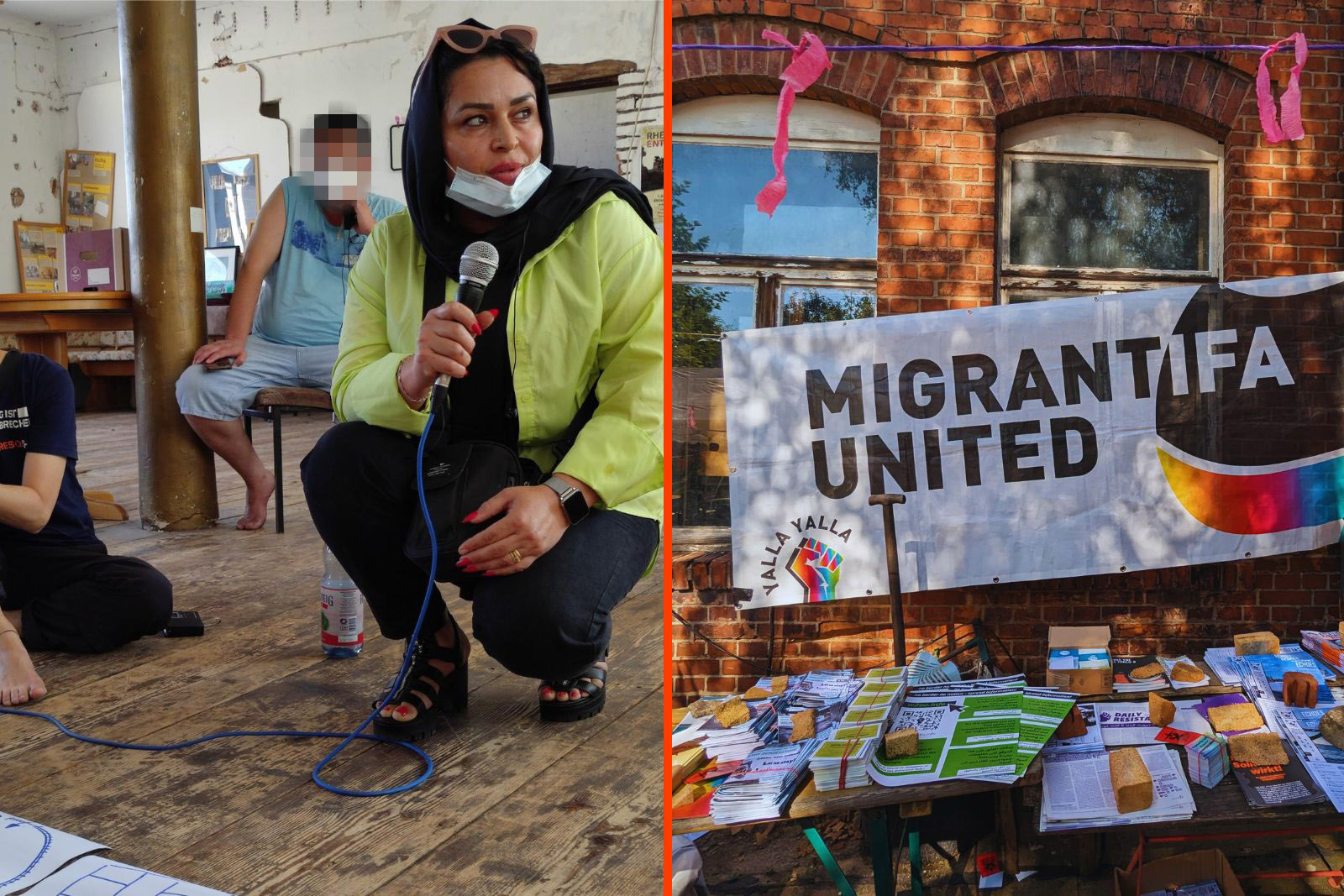
The far right has long and deep roots in Thuringia. After the second world war, it became part of the communist German Democratic Republic (GDR), East Germany. “The GDR declared it was an anti-fascist state and no Nazis existed in it,” said sociologist and far-right extremism researcher Matthias Quent, author of Germany Right Outside: How the right is grabbing power and how we can stop them. He explained that this denial meant those who still shared Hitler’s ideologies were never properly confronted, adding that this was why the far right in what used to be East Germany “was always more militant and violent” than in the regions that formed West Germany.
Then, in the early 1990s after the country reunified, around 20% of workers in former East Germany lost jobs at formerly state-owned companies. “There was a vacuum of authority that the far right took advantage of,” Quent explained. Neo-nazis from other parts of the country flocked to the former East Germany where they could recruit among the many left disoriented and unemployed. “Those neo-Nazi youths didn’t disappear — they grew up, they entered the middle class and became rooted in society,” Quent said.
Much of the former East Germany experienced similar problems, but Thuringia’s remote geography – a fertile central plain bounded by heavily forested hill and mountain ranges – allowed militant groups to flourish. They established meeting venues, record labels, publishing houses and even fashion labels. Symbols and phrases used by the Nazi regime were banned but others were adopted including the valknut, a Norse symbol associated with Odin. The most notorious of these groups was the National Socialist Underground (NSU), a terror cell that formed in Thuringia and murdered nine people from migrant backgrounds between 2001 and 2010. In 2022, the Office for the Protection of the Constitution estimated there were 2,400 potential right-wing extremists in Thuringia and yet authorities have been criticised by human rights groups for their slowness in dealing with these violent groups.
Historically, Thuringia has not had much exposure to outsiders. Before reunification, migration to East Germany was limited to workers from other socialist countries who were segregated from the German population. This demographic changed dramatically in 2015, when former Chancellor Angela Merkel took in a million people fleeing wars in the Middle East and distributed them in reception centres in towns and villages across the country, many of which had never housed foreigners before. Thuringia now has three reception centres.
When the AfD formed in 2013, it had an anti-EU platform, but it pivoted quickly to exploit frustration around economic deprivation and redirect it towards the new arrivals. It became the anti-immigration party and won its first seats in the German federal parliament in 2017; in September’s state legislature elections in Thuringia it won the largest vote share (32.8%) and the most seats (32) of any party. The success it has built on a nativist platform is emboldening the region’s shadowy neo-Nazi movement. “People see migrants coming and they feel scared they will lose even more. The AfD is telling them ‘We’ll make everything ok again’,” said Elisa Calzolari, chief executive of local NGO Migranetz that offers legal advice and counselling to new arrivals.
In the week before the state elections, the town where Mohammed and his family live was festooned with AfD posters bearing its slogan “homeland instead of multiculturalism”. The mediaeval town centre was dressed for its summer festival, with bunting strung between the charmingly crooked timber buildings and food stalls pumping the smell of grilled bratwurst into the air. Locals didn’t want to talk about politics. “I really have no idea, and I have no interest either,” said one woman working in an Italian restaurant when asked what she felt were the most important issues for the election. Nearby, a man sporting a huge valknut tattoo on his left bicep stood browsing the beer stalls next to local families. Further out in the Thuringian countryside, a pub serves a commemorative schnitzel for Hitler’s birthday.
Mohammed says the harassment he and his children suffered has eased off over the past six months. Since February’s arson attack, local police have increased patrols around their home and installed additional street lighting. No one has been arrested for starting the fire. Mohammed learned through his social worker that police issued warnings to two local boys they think were responsible and are treating the attack as a case of teenagers messing about. Ezra, which has reviewed the case, says this response is indicative of the minimisation of racist violence by authorities that is commonplace in Thuringia. “This is something we often experience: the racist motivations behind crimes are ignored,” a spokesperson said. A state police spokesperson said that attacks against refugees are recorded as politically motivated crimes. However, local police did not respond to requests for comment on this specific case.
Other families in Mohammed’s building have new problems. Mohammed’s upstairs neighbour Omar has come to his door complaining about the government’s recently introduced payment card, which asylum seekers are provided with to make payments in shops but only allow €50 cash withdrawals monthly. Omar is upset because he can’t pay for his childrens’ €160 sports lessons as their school only accepts cash. “What am I supposed to do? I cannot pay this!” he said.
The payment card is one of several new policies concerning asylum seekers adopted by the current “traffic light coalition” German government — built from the centre-right SPD, the Greens and the pro-business Free Democrats. Chancellor Olaf Sholz has drafted legislation to allow quicker deportations, and opposition leader Friedrich Merz, of the conservative CDU party, has even suggested abolishing the right to asylum. The AfD may not be in power, but its rhetoric has influenced government policy.
Mohammed’s life in Thuringia is tough. He has tried and failed to find work in local factories. His youngest son hates going to a school where he can’t yet speak the language. Mohammed wants to move on and forget about the attacks but with the perpetrators unpunished and at large, he worries the harassment could start again at any moment. The AfD’s election success has only added to his sense of unease. “Of course we will respect whatever the German people vote for,” he said. “But we know some of these parties hate refugees. We are very scared about what laws they might bring in next.”
 Newsletter
Newsletter


